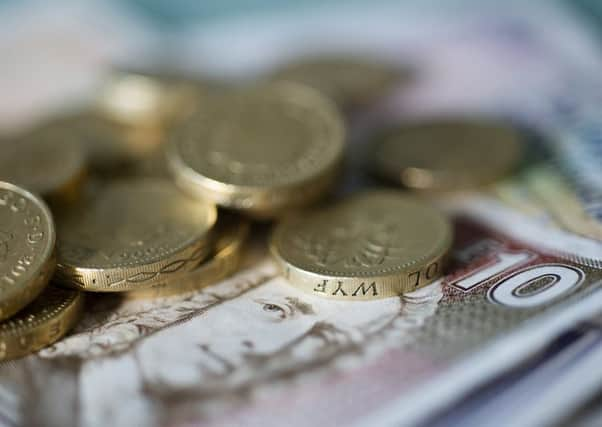Stephen Hay: Tax rise alone won't cut Scottish deficit
This article contains affiliate links. We may earn a small commission on items purchased through this article, but that does not affect our editorial judgement.


In simple terms, Scotland currently has a fiscal deficit of £13 billion for 2016/17. That is the shortfall this year between our revenues less our expenditure.
While that figure is forecast to fluctuate over the next few years, Scotland’s deficit is forecast to remain at least around £11bn each year.
Advertisement
Hide AdAdvertisement
Hide AdThe question which needs to be answered, in the absence of significant North Sea oil revenue at any time soon, is how do we meet the deficit and move to a position of fiscal balance? Surely there can only be three options to consider seriously, which are tax increases, spending cuts or borrowing.
Indeed, a measure of all three is most likely to be the answer. But if we explore this further, to meet an £11bn deficit, how much more can we expect to raise in Scotland from income tax, for example? We could ask every taxpayer in Scotland to pay 1p more on the basic rate of income tax and raise £500m, or we could introduce more tax bands to help to decrease the deficit gap.
If we asked everyone who earns more than £150,000 to pay an extra 5p at the higher rate, and also introduced a new 25 per cent rate to increase the 20 per cent rate for earnings between £20,000 and £45,000, we would only raise somewhere in the region of £1.4bn at most, perhaps somewhat less. And by doing that we are expecting everyone to pay more.
The rate band change would mean a rise of £650 each for everyone affected while highest earners would pay at least £2,500 each. As always, increased tax receipts will penalise someone. However, it is the amount of tax we can raise in Scotland that is the issue.
If it is accepted that this looks difficult to do and we still need another £10bn to meet the shortfall, then that has to come from a cut in services or by borrowing. The problem with borrowing is that we will find it difficult to repay on the estimated annual deficits that are forecast. That only leaves spending cuts, which is not sustainable.
We need to understand that no matter what, Scotland will not be able to meet the existing deficit by means of tax increases alone particularly in relation to income tax on earnings.
Advertisement
Hide AdAdvertisement
Hide AdRegardless of the rich, the poor or the in‑between, the country simply has no way to meet the gap, not by taxation on earnings anyway.
• Stephen Hay is head of tax in Scotland for RSM